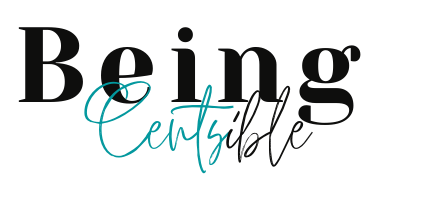“Nothing has meaning except for the meaning you give it.”
T Harv Eker
If you’re struggling with money, your limiting money beliefs are the cause. The truth is that your negative money beliefs are what hold you back from financial success and making all the money you deserve.
But don’t beat yourself up about it! You can overcome limiting money beliefs and change your money situation for the better.
Growing up, you unconsciously created your belief system based on what you learned from society, school, and your parents. If the financial life you experienced was positive, you likely developed an abundance mindset. If your money experiences were negative, you probably created a scarcity mindset.
The way you save money and spend money stems from your belief system and mindset. You created your financial reality with your thoughts about money. The thoughts in your mind have created your income, expenses, savings, and debts.
You have been thinking these limiting thoughts so often that they’ve transformed into your negative money beliefs.
In my case, I used to have a terrible money mindset, and my bank account and financial reality were proof of it.
I was always in a place of scarcity and lack. Regardless of my education, skills, or work experience, my income stayed the same. I could never save money because there was never enough of it, and debt was always a problem.
Once I overcame my limiting beliefs, everything changed. I started to earn more money, and managing my finances became easier.
You can overcome your limiting beliefs too. Just keep reading to learn how.
How Limiting Beliefs Create Your Money Results
A limiting belief is just a negative thought you keep thinking. You can control whether you think limiting or abundant thoughts.
To better understand how your thoughts and beliefs create your money, let me explain how your mind works in general.
In life, we have circumstances, thoughts, feelings, actions, and results.
Circumstances are facts.
Facts are things and events you can prove, such as your name, age, and bank balance. If your account says you have $1,000, that’s a circumstance, a fact.
A thought is a sentence in your head about a circumstance in your life.
A thought is an opinion, not a fact. Such as “$1,000 is not enough money.”
For one person, $1,000 might not be a lot of money, but for someone else, $1,000 could be plenty of money.
Do you see how people can have different thoughts (not enough/plenty) about the same circumstance (having $1,000 in the bank)?
Feelings are vibrations in your body caused by thoughts.
Your thoughts about money cause whether you feel sad or happy about your $1,000.
I have $1,000 in the bank, and that’s not enough to pay all my bills = You feel bad.
I have $1,000 in the bank, and that’s enough to pay my car loan, phone, and groceries = You feel good.
Do you see how each thought causes a different feeling?
Do you also see that you can choose which thought you think?

You take action or don’t take action based on how you feel.
Your thoughts and feelings determine your next step, so it’s essential to become aware of what you’re thinking and feeling.
For example, the thought that “$1,000 is not enough money” causes you to feel bad.
Because you feel bad, you avoid looking at your bills and bank account (the very things making you feel bad).
So, you binge-watch Netflix instead of managing your money and expenses.
Results are the effects of your actions.
When you binge-watch Netflix instead of managing your money, you miss all the ways you’re overspending on Starbucks and Amazon. Before you know it, you don’t have enough money to pay your bills.
Do you see how the result of not having enough money to pay bills proves the original thought – $1,000 is not enough?
The whole negative money cycle started with the limiting belief that “$1000 is not enough money.”
If the concept of Circumstances = Thoughts = Feelings = Actions = Results feels overwhelming, I get it. It took me some time to grasp the idea, but it opened the doors to financial abundance once I did.
I recommend you listen to Episode 1 of the Life Coach School podcast to understand the concept better. Once it “clicks” for you, everything can change. Another great resource to learn how to manage thoughts and limiting beliefs is Brooke’s book Self Coaching 101.
Once you understand how your thoughts and beliefs create your money results, it’s time to discover the limiting money beliefs holding you back.
Become Aware of Your Limiting Beliefs About Money
You cannot fix your money problems by budgeting or saving money alone. You also have to address your limiting beliefs and mindset. Otherwise, your self-limiting beliefs about money will always cause resistance and sabotage your efforts to create more money and financial abundance.
A great book to help you become aware of your limiting beliefs is Secrets of the Millionaire Mind by T. Harv Eker. One of the personal finance books that helped me change my money mindset.
T. Harve Eker walks you through seventeen ways wealthy people think and act differently from people who struggle with money. I highly recommend this book because one way to become aware of your limiting beliefs is to understand how rich people think differently about money.
11 Questions to Help You Discover Your Limiting Beliefs
You can also answer the following 11 questions. I learned this exercise from Brook Castillo, the Life Coach School founder. Answering the following questions helped me become aware of my subconscious beliefs about money, and they can help you too. By taking your time and answering these questions, you will uncover the common limiting money beliefs creating your financial situation.
Past Beliefs
- What did your parents say about earning, saving, spending, and investing in money?
- Were you taught that money requires hard work?
- What did you learn about rich people? Poor people?
Current Beliefs
- What are your current thoughts about earning, saving, spending, and investing money?
- What do you think about having money? Do you know what having money means?
- What do you think about debt?
- Do you think $100,000 is a lot of money? Why or why not?
Future Belief
- How much money do you think you’ll earn in your lifetime?
- Do you believe you can afford expensive items in the future, like a house or dream vacation?
- How do you feel about saving for the future?
- What are your thoughts about retirement?
Take Action and Change Your Limiting Money Beliefs
Grab a pen and notebook and answer each of the 11 questions. I cannot express how helpful these questions are in understanding your subconscious beliefs and how you think about money.
The first step to creating a better relationship with money is being aware of your limiting beliefs. By taking the time to uncover and understand your limiting money beliefs, you can take action to change them.
Take every limiting belief you discover, reframe the thought, and create an empowering belief.
By reframing the answer to a positive belief, you take control of your thoughts and, in the process, create better money results.







